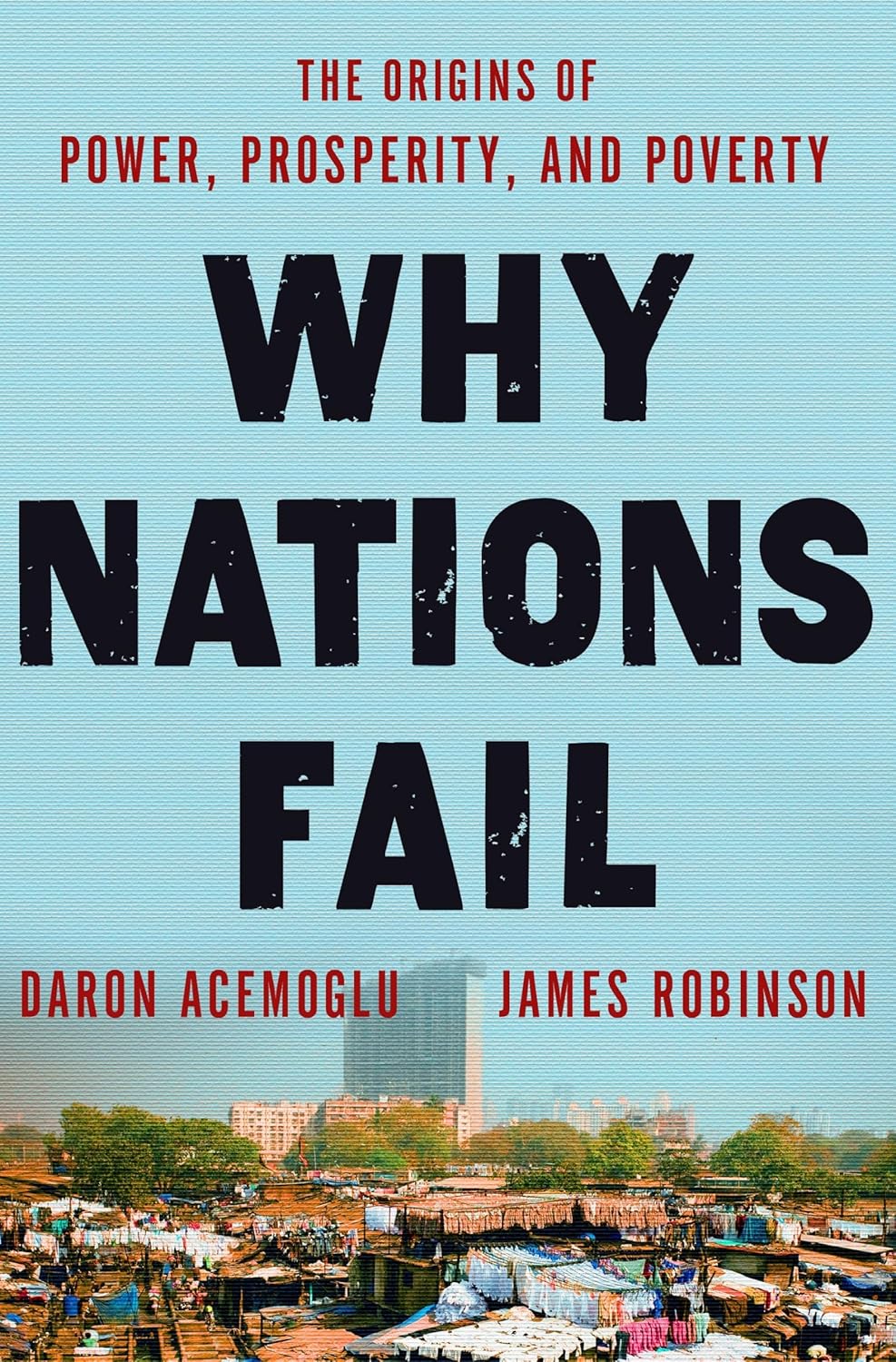Why Nations Fail: The Origins of Power, Prosperity, and Poverty
Secure Checkout with Amazon!
- Top-Rated Books
- Readers Satisfaction
- Verified Customer Reviews
Description
Why Nations Fail: The Origins of Power, Prosperity, and Poverty is a widely acclaimed book by economists Daron Acemoglu and James A. Robinson. It delves into the question of why some nations are rich and others poor, exploring the economic and political factors that determine a country’s success or failure. Rather than attributing prosperity to geography, culture, or purely economic policies, the authors argue that the primary cause is the nature of political and economic institutions in a nation.
The central thesis of the book is that nations with inclusive institutions—those that provide broad access to economic opportunities and political power—tend to become prosperous. In contrast, extractive institutions, where power and wealth are concentrated in the hands of a few, lead to poverty and stagnation. Inclusive institutions encourage innovation, protect property rights, and create an environment where individuals are incentivized to contribute to economic progress. Extractive institutions, on the other hand, discourage participation, limit opportunities, and maintain the status quo, preventing growth and widespread prosperity.
The authors provide numerous historical examples to support their argument, examining different nations across time periods. They analyze case studies like North and South Korea, the United States and Latin America, and ancient Rome, illustrating how institutional differences have led to vastly different outcomes for these societies. They also emphasize that economic institutions are shaped by political institutions, and that shifts in power—whether through revolution, colonization, or reforms—can lead to institutional change that alters the course of a nation’s prosperity.
A key idea in the book is the “vicious” and “virtuous” cycle of institutions. In nations with inclusive institutions, there is a tendency for institutions to become more inclusive over time, creating a virtuous cycle of growth and development. In contrast, extractive institutions tend to perpetuate themselves, leading to a vicious cycle where poverty, inequality, and political instability reinforce each other.
Why Nations Fail also critiques existing theories that attribute national success to geography (such as natural resources or climate) or culture. While these factors can play a role, the authors argue that the core issue lies in institutions. For instance, countries with abundant natural resources can still fail if their institutions are extractive, as these resources may be exploited by a ruling elite without benefiting the broader population.
Ultimately, the book calls for a deeper understanding of the importance of political and economic institutions in shaping the fate of nations. It highlights the role of human agency and collective action in driving institutional change and points out that while reforms are difficult, they are possible, and they can have a profound impact on a nation’s trajectory.





Reviews
There are no reviews yet.